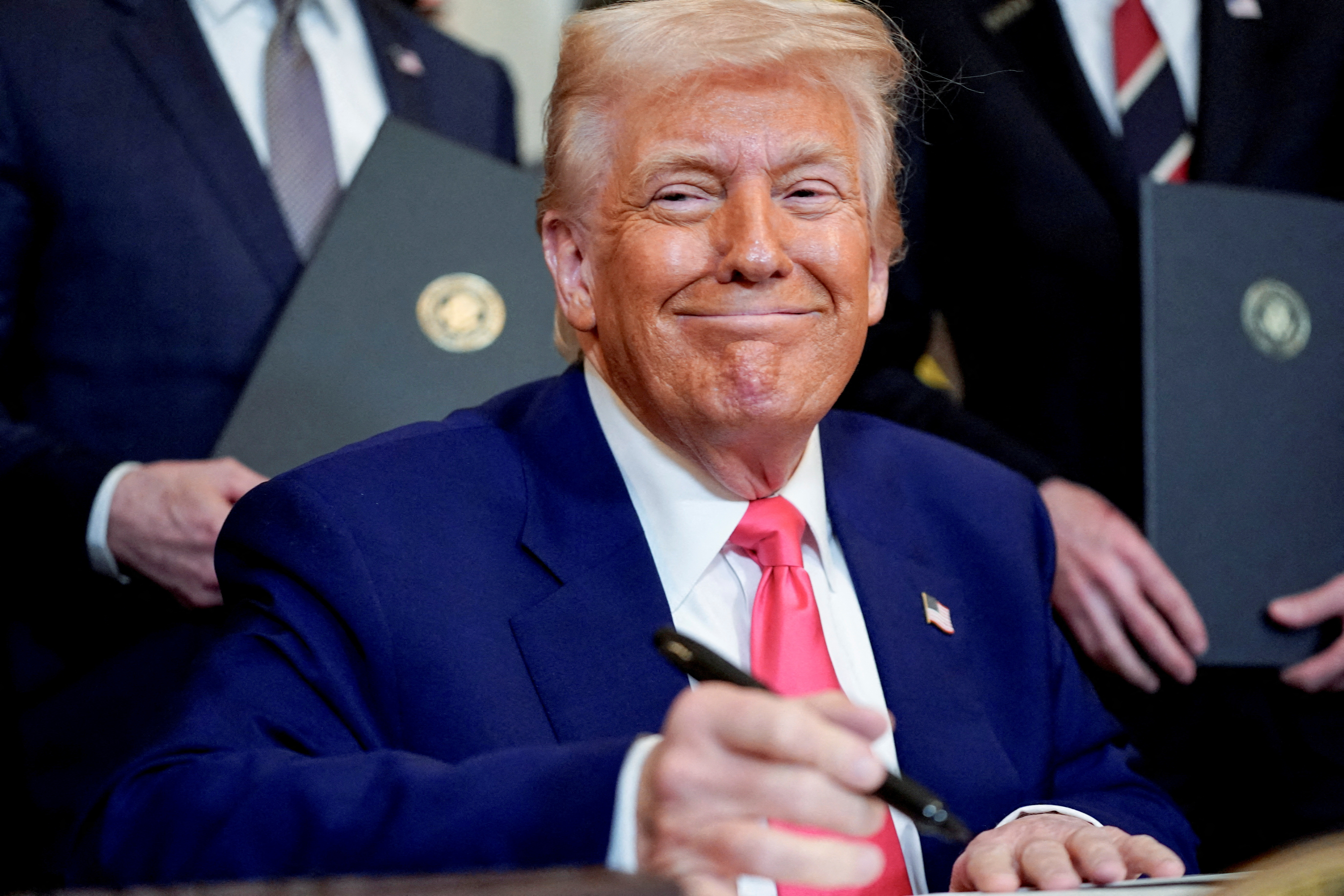Down the rabbit hole of Donald Trump’s foreign policy, we find ourselves in a curiouser and curiouser landscape, one that seems lifted from the pages of Lewis Carroll’s “Alice in Wonderland”.
Like Alice stepping into a world where rules are fluid, time moves backward, and power is wielded through riddle and spectacle, the Trump presidency has turned traditional diplomacy on its head. Yet this is not a dreamscape. It is a real-world arena where global stability, alliances and economic systems are now hanging in the balance.
Trump has not only disrupted the American domestic political order; he has shaken the international system with equal force. And while critics may scoff at his methods, there is a peculiar logic to it all. As in Wonderland, where the nonsensical obeys its own internal rules, Trump’s foreign policy is not without structure. It simply follows a different grammar: transactional rather than relational; immediate rather than strategic; spectacle over subtlety.
Consider the Queen of Hearts’ signature cry “Off with their heads!” and compare it with Trump’s diplomatic decisions. His withdrawal from the Iran nuclear deal in his first term, for instance, echoed through the Middle East and the EU like a decapitation strike to multilateralism, emboldening hardliners and unsettling allies. Yet in a surprising turn, his administration has now announced direct high-level talks with Iran on its nuclear programme, an unexpected but welcome shift that suggests a recalibration of his earlier stance. But equally fascinating, it now appears that the Israelis were left totally in the dark on this critical departure which in itself is revealing. As in Wonderland, what appears as contradiction may in fact be part of a deeper, if unconventional, logic.
President Trump has suggested a dramatic Gaza proposal – his riviera one — bypassing traditional channels and pressuring regional actors to fall in line, lest they be sidelined. Like Wonderland’s chaotic decrees, these moves confuse as much as they clarify.
His first-term recognition of Jerusalem as the capital of Israel, flipped decades of US policy on its head. In his second term, this logic has only intensified: a flurry of executive orders, more than any modern president has issued in such a short span, reflects a Mad Hatter’s pace of governance, where haste replaces deliberation, and the teacups are always in motion.
The Canada-as-51st-State remarks, the revived Greenland acquisition musings, renewed strategic interest in the Panama canal, and tariff increases on allies and adversaries alike, suggest a vision of the world as a Monopoly board, where properties can be bought, traded, or punished at will. Trade policy becomes a Mad Tea Party, with rotating chairs and shifting rules. The United States-Mexico-Canada Agreement (USMCA), once hailed as a free-trade victory, is now labelled a “terrible deal” by the same man who signed it. As in Wonderland, the logic of yesterday does not bind the decisions of today.
But even Wonderland has a logic. The world of Trump is governed by an ethos of disruption: if institutions resist change, break them; if allies hesitate, threaten them; if agreements feel imperfect, exit them. His transactional approach, informed by a worldview shaped in part by his book “The Art of the Deal”, reimagines diplomacy as a series of zero-sum negotiations rather than multilateral engagements. Diplomacy is not a tapestry of mutual interests but a ledger of wins and losses. Yet international relations are not real estate deals. They are not zero-sum. If every country screams “country first”, international diplomacy collapses into entropy, where unpredictability replaces order.
In Carroll’s tale, Alice meets the Caterpillar who demands, “Who are you?”. Trump’s foreign policy forces the same question of allies, adversaries, and even the US itself. The message is clear: adapt or risk being sidelined. And there is logic in this approach. It is deeply nationalist, sceptical of alliances, focused on sovereignty and control. But logic is not the same as strategy.
Opening too many fronts, ranging from domestic flashpoints that often echo in foreign policy, to a trade war with China, a Middle East reset, Nato threats, a posture toward Putin that hovers between admiration and opportunism, and an overtly transactional stance toward Ukraine, has further unsettled allies seeking clarity in US security commitments.
Ultimately, Alice’s journey through Wonderland was not just absurd; it was a test of identity, courage and clarity. Likewise, navigating Trump’s foreign policy requires an understanding of its internal logic and a readiness to engage or resist accordingly. It may seem absurd, even dangerous, but it is not random. It is a deliberate break from the rules of the past, through the looking glass of American power.
Whether this journey ends in reinvention or regret remains to be seen. But one thing is certain: Trumpism is here to stay, with or without Trump. In Trump in Wonderland, expect the unexpected. And remember: the Cheshire Cat always had the last smile.
Euripides L Evriviades is a former ambassador to the US and former high commissioner to the UK






Click here to change your cookie preferences